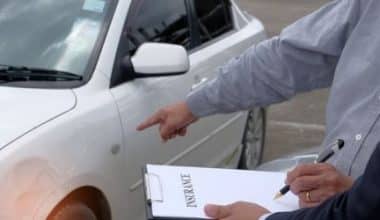Property damage refers to the destruction, harm, or deterioration of someone’s personal or real property. It can occur in various factors such as natural disasters, accidents, intentional acts, or negligence. Understanding the concept is essential as it affects individuals, businesses, and even communities. Hence, you should also be knowledgeable about insurance coverage, legal implications, and the steps to take after experiencing property damages. Here, we explain various aspects of property damage, exploring its definition and types. We also discuss the property damage appraiser and liability, the lawyer(s) that can handle it, and situations that can lead to a personal claim.
What Is Property Damage?
Property damage is any harm or destruction inflicted on physical assets such as buildings, vehicles, or personal belongings. It can occur due to various reasons, including accidents, natural disasters, vandalism, or negligence. Property damage/destruction not only results in financial losses for the affected individuals or organizations but also disrupts their daily lives and operations.
When property damage occurs in your vehicle or personal belongings, assess the harm and take appropriate action or claim promptly. This involves documenting the damage thoroughly and informing the relevant authorities or insurance companies to initiate necessary legal and financial procedures for compensation or recovery. Additionally, consider preventive measures to minimize the risk of future property. It includes installing security systems or obtaining comprehensive insurance coverage.
Overall, property damage can have significant repercussions on a personal and societal level. It emphasizes the importance of preparedness, precautionary measures, and reliable support systems to mitigate its impact.
Types Of Property Damage
There are different types of property damage and common ones include broken windows, dented vehicles, water or fire damage, foundation cracks, and roof leaks. Depending on the circumstances, insurance policies can cover property destruction. This helps to mitigate the financial burden of repairs or replacements.
Hence, it is important for property owners to regularly evaluate their properties and take preventive measures to minimize potential destruction. And promptly address any issues to ensure the safety and longevity of their assets.
What Types Of Situations Can Lead To A Personal Property Damage Claim?
Personal property damage claims can arise in many situations where an individual’s belongings are damaged. One common scenario is a car accident, where a collision may cause damage to the vehicles involved. In such cases, the driver whose negligence caused the accident may compensate the other party for the cost of repairing or replacing their damaged vehicle.
Another situation that can lead to personal claims is a natural disaster, such as a fire or a storm. These events can cause significant damage to homes, furniture, electronics, and other personal belongings. In these cases, homeowners or renters may file insurance claims to recover the cost of repairing or replacing their damaged property.
Other situations include theft, vandalism, and accidents in rented or borrowed spaces. For instance, if someone breaks into a person’s home and steals their valuable possessions, the homeowner may file a claim with their insurance company to recoup the value of the stolen items.
Similarly, if someone accidentally damages or breaks something while staying at a friend’s apartment, they may repair or replace the damaged property. In all these situations, a personal property damage claim allows individuals to seek reimbursement for the financial losses incurred from the damage to their belongings.
What Types Of Property Damage Cases Can A Property Damage Lawyer Handle?
A property damage lawyer specializes in handling a wide range of cases related to property destruction. These attorneys can assist individuals and businesses in various damage claims. One common type of case they handle is damage by natural disasters such as hurricanes, floods, and earthquakes. They can help clients navigate through complex insurance claims and ensure they receive fair compensation for the damage sustained.
These lawyers also handle cases involving damage caused by human actions or negligence. This can include fires, explosions, or accidents. These attorneys can help clients gather evidence, assess the extent of the damage, and seek compensation from the responsible parties. Whether it’s residential property, commercial properties, or personal belongings, a property damage lawyer has the expertise to handle these cases. And he/she will strive to protect the rights and interests of their clients in property disputes.
What Is A Property Damage Appraiser
A property damage appraiser is a professional who assesses and evaluates the extent and cost of damages caused to properties. Typically, insurance companies, homeowners, or businesses hire them to assess the value of property and provide an accurate appraisal report. These appraisers are trained to evaluate several destructions such as natural disasters, accidents, fire, vandalism, or other incidents.
The role of a property damage appraiser is crucial in determining the amount of compensation that will go to the property owner. They inspect the property thoroughly, noting all damages and taking photographs or videos for documentation purposes. They also consider factors like age, quality, and property condition before the accident occurred.
Based on their assessment, they provide a comprehensive report. This includes a detailed breakdown of the damages, the estimated cost of repairs or replacement, and any additional costs associated with the claim. Additionally, their expertise ensures the property owner and the insurance company have a fair and accurate evaluation of the harm, helping to expedite the claims process.
What Is Property Damage Liability?
Property damage liability is insurance coverage that helps protect individuals and businesses from financial losses incurred due to damaging someone else’s property. It provides coverage for repairing or replacing property damaged due to your actions or negligence. This can include anything from accidentally crashing your car into someone’s fence to causing damage to someone’s home while performing maintenance work.
In addition, property damage liability insurance typically covers the cost of repairs or replacements up to the policy limit, which is determined when purchasing the insurance. This type of insurance is important for individuals and businesses alike, as it helps protect against potential financial burdens that could arise from unintentional act.
Having property damage liability insurance is essential for individuals and businesses as it offers financial protection against unintentional destruction. Whether it is an accident on the road or damage while performing services, the liability insurance can save you from incurring significant expenses. It provides coverage for repairing or replacing the damaged property and gives you the peace of mind that you won’t pay from your pocket. Without property damage liability insurance, individuals and businesses may be legally and financially responsible for the damages they have caused, potentially leading to lawsuits and financial hardships.
What Is An Example Of Property Damage Liability?
An example of property damage liability can occur in a car accident. Let’s say you are driving and accidentally crash into someone’s fence. Your property damage liability insurance will cover the damages, and the insurance company will help pay for the repairs up to your coverage limit.
Another example can be a situation where a contractor is remodeling a house and accidentally damages a neighbor’s property, such as a window or the exterior. The contractor’s property destruction liability insurance will cover the destruction repair cost.
In both scenarios, the liability insurance acts as a safety net. That’s protecting the policyholder from the potentially high costs associated with damages and helps to restore the damaged property to its original condition.
What Is Property Damage Coverage?
Property damage coverage is a type of insurance that protects you financially if you harm someone’s belongings. This coverage is common in auto insurance policies, but you can obtain it separately for other properties.
Is Property Damage The Same As Collision?
No, they are not the same. Property damage refers to any harm or destruction caused to someone else’s belongings as a result of an accident or incident. This can include damage to vehicles, homes, buildings, or other personal or real belongings. For example, if you accidentally hit a fence with your car, the cost of repairing the fence would be considered damage.
On the other hand, collision refers specifically to the damage caused to your vehicle during an accident. It covers the car repairs or replacement price, regardless of who was at fault. This coverage is particularly essential for those with expensive or newer vehicles that could incur significant costs in the event of a collision.
In summary, property damage and collision are different concepts within the realm of insurance. Property destruction covers harm to someone’s belongings, while collision coverage focuses on injury to your vehicle. So, understanding these distinctions can help make informed decisions when selecting the appropriate insurance coverage for your needs.
What Is The Legal Term For Destroying Property?
The legal term for destroying property is property damage.
What Is It Called When Someone Destroys Someone Else’s Property?
When someone intentionally damages or destroys someone else’s property, it is commonly called vandalism. Vandalism is a criminal act that involves the deliberate destruction, defacement, or alteration of another person’s property without their consent. This includes graffiti on buildings, breaking windows, slashing tires, or damaging public infrastructure.
What Is The First Action That Should Be Taken When A Property Is Damaged Destroyed?
When a property is damaged or destroyed, the first crucial action is ensuring the safety of all individuals involved. The immediate priority is to assess the situation, determine if there are any injured parties. And if necessary, contact emergency services for medical assistance.
Meanwhile, evacuating the property and moving everyone to a safe location is imperative to avoid further harm. In situations where structural integrity is compromised, prevent access to the affected area to prevent accidents or injuries.
What Is The Difference Between Liability And Property Damage?
Liability and property damage are two distinct concepts in the world of insurance. Liability refers to the legal responsibility a person or entity has for causing harm to others, either through their actions or omissions. This can be bodily injury caused to someone else. Liability insurance provides protection for the costs associated with these damages. This includes medical bills, legal fees, and compensation for the injured party.
On the other hand, property damage refers specifically to physical harm caused to someone else’s things. It can include damage to buildings, vehicles, or belongings. The insurance covers the costs of repairing or replacing the damaged property. This can be particularly important for homeowners or business owners who may accidentally cause damage to a third party’s things. By having the insurance, individuals can protect themselves financially in case such incidents occur.
In summary, liability insurance covers the costs of bodily injury caused to others. While property damage insurance specifically focuses on the physical harm caused to someone else’s belongings.
Conclusion
In conclusion, property damage is a significant concern that affects individuals and communities on multiple levels. But understanding what property damage is and being aware of its potential causes and consequences is crucial for everyone. Whether caused by natural disasters, accidents, or intentional acts, property destruction can result in financial, emotional, and physical hardships for the affected individuals and communities.






